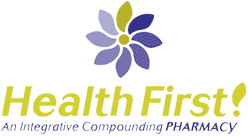Page 2 of 2
This took too much time. Pharmcists (who typically spent 8 years in college) were paid more than retail clerks and they must be made to be productive. Pharmacists were given quotas. They had to fill a pre-determined number of prescriptions per day or they were disciplined or suffered financial consequences. Compounding was almost a lost art.
The second force was Third Party Payers, the insurance companies and HMOs who later became “Pharmacy Benefit Managers” (PBMs). These companies (some owned by drug companies e.g. Merck-Medco) began telling pharmacies and pharmacists what they would pay for medications. Already thin margins were shaved even further. Pharmacy chains and chain store pharmacists had to fill even more prescriptions than before to stay in business (yes, they were loss-leaders but the pharmacist shortage meant that they had to pay higher and higher wages to keep their pharmacists and not suffer deep losses). Today, virtually no chain pharmacy will compound a prescription. And, what few independent pharmacies there are, will not compound either because they are still trying to compete for the ever-shrinking PBM dollar (and, now, Medicare Dollar because the US Govt. let the fox into the chicken coop by letting a PBM manage the Medicare Prescription Plan!).
This could be considered the Dark Ages of compounding. Thankfully, there is a Renaissance, a pendulum swing, a new paradigm, a “back to the future” resurgence of compounding. Today, there is an ever growing group of pharmacists (over 3,000 at last count) that are dedicated to the art of compounding. For us it brings back the warm, personal contact and involvement with patients and physicians that drew us into the profession before the chains, supermarkets, and big-box pharmacies, big pharma, HMOs, and PBMs took over. Now we get to know our patients. You have to when your promise is to customize a medication to an individual’s needs. Now we have more than a “fax” relationship with doctors. We become true collaborators with them and their patients to come up with the very best solution for a particular problem. Compounders don’t spend all day on the phone with insurance companies, we gladly spend time consulting with patients, speaking at monthly seminars, visiting doctors to offer our services and we take the time necessary to make each and every preparation pharmaceutically elegant. Once again, we are a proud profession in the service of our patients.
Finally, compounding is not taking a product in a strength or dosage form that is already available from a manufacturer and formulating it for the sake of formulating it. If you can get it from a manufacturer in the strength and form that you need, and you don’t have allergic reactions to the dyes, preservatives or excipients, then there is no need to have it compounded by a pharmacist extemporaneously. But there are so many way to improve what is
<< Start < Prev 1 2 Next > End >>
